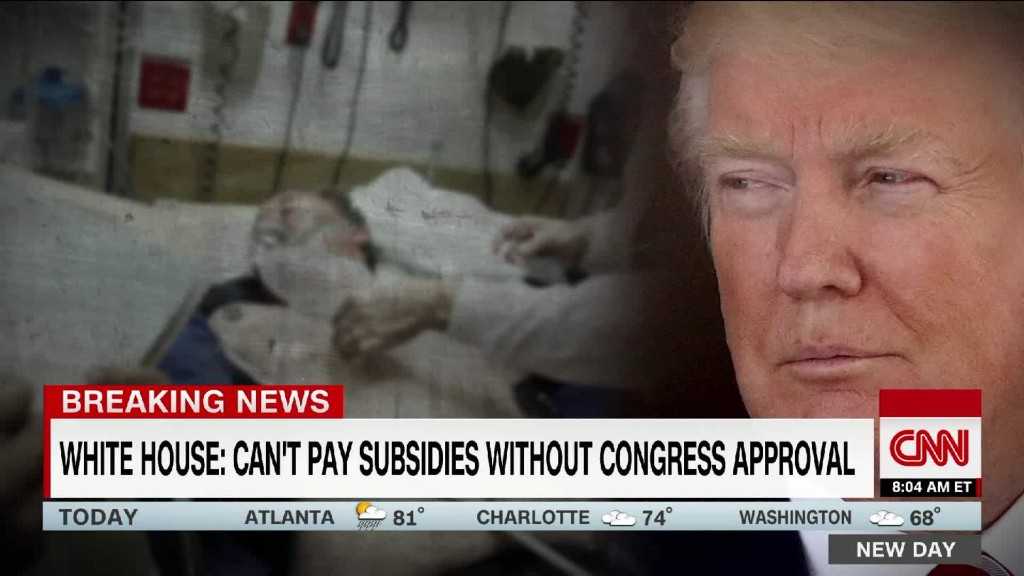
Not so fast, Idaho.
Though it is doing its best to undo the Affordable Care Act, the Trump administration put the kibosh on Governor C.L. "Butch" Otter's plan to let insurers sell policies that don't meet all of Obamacare's mandates.
The Centers for Medicare and Medicaid Services said Thursday that Idaho would not be enforcing the law if it allowed these state-based policies. That could spur the federal agency to take over the state's enforcement authority and to levy civil penalties on any insurer that sold such plans.
"The [Affordable Care Act] remains the law and we have a duty to enforce and uphold the law," CMS Administrator Seema Verma wrote to Otter and the state's insurance commissioner.
However, Verma did say that she wanted to work with Idaho and other states to repair the "damage" caused by the Affordable Care Act. She suggested that Idaho could legally implement many of its proposals through short-term health insurance plans, which don't have to adhere to all of Obamacare's rules. The Trump administration is on course to allow insurers to offer these plans for up to a year, rather than just three months.
Looking to reduce the cost of individual health insurance, Otter issued a controversial executive order in January aimed at allowing carriers to sell non-Obamacare plans as long as they also sold polices on the exchanges.
Related: Idaho thinks it has a better idea than Obamacare
"We have been waiting patiently while Congress has been unable to find a solution and Idaho families have been forced to buy products that are too expensive and loaded with benefits they don't want or need," he said at the time. "Now the door is open for states to pursue our own reasonable solutions."
Blue Cross of Idaho took the governor up on his offer, unveiling a set of five Freedom Blue policies that could cost half as much as those sold on the exchange. It planned to start coverage on April 1, but has not yet started marketing the plans, a spokesman said.
The governor's office said that Verma's letter was not a rejection of Idaho's state-based plans, but an invitation to continue discussing how to set them up.
"Her letter made it clear that Idaho's efforts to pursue innovative alternatives hold great promise," said a statement issued Friday by Otter, Lieutenant Governor Brad Little and Insurance Director Dean Cameron. "We will consider all possible options and then continue discussions with [the Trump administration] on how best to achieve our shared goals of reducing the costs of coverage and stabilizing our health insurance market."
In a statement, Blue Cross called Verma's decision "disappointing" but said it leaves an opening for Idaho officials "to craft a solution to provide access to individual health insurance."
"As Idaho's leading health insurer, Blue Cross of Idaho stands ready to provide greater choice and lower cost health insurance to the 110,000 uninsured middle-class families in Idaho," said Charlene Maher, the insurer's CEO. "We are very concerned that every delay will negatively impact choice and affordability throughout the state."
Otter's executive order immediately alarmed consumer advocates, who worried that other states would follow suit if the Trump administration did not step in. Health Secretary Alex Azar had sidestepped the issue when asked about Otter's efforts.
Though it cannot repeal the Affordable Care Act, the Trump administration has been trying to chip away at it. In October, President Donald Trump issued an executive order aimed at making it easier for insurers to sell policies that don't adhere to all of the law's rules.
Related: Trump administration unveils alternative to Obamacare
Acting on that executive order, the Department of Health and Human Services last month proposed regulations that will make it easier to obtain coverage through short-term plans. These policies are likely to be cheaper than Obamacare policies because they are allowed to exclude those with pre-existing conditions and base rates on an applicant's medical history, unlike plans sold on the Obamacare exchanges.
Also, short-term plans don't have to offer comprehensive coverage and can impose annual or lifetime limits, meaning they may only pay out a set amount -- often $1 million or less -- leaving the policyholder on the hook for the rest.


